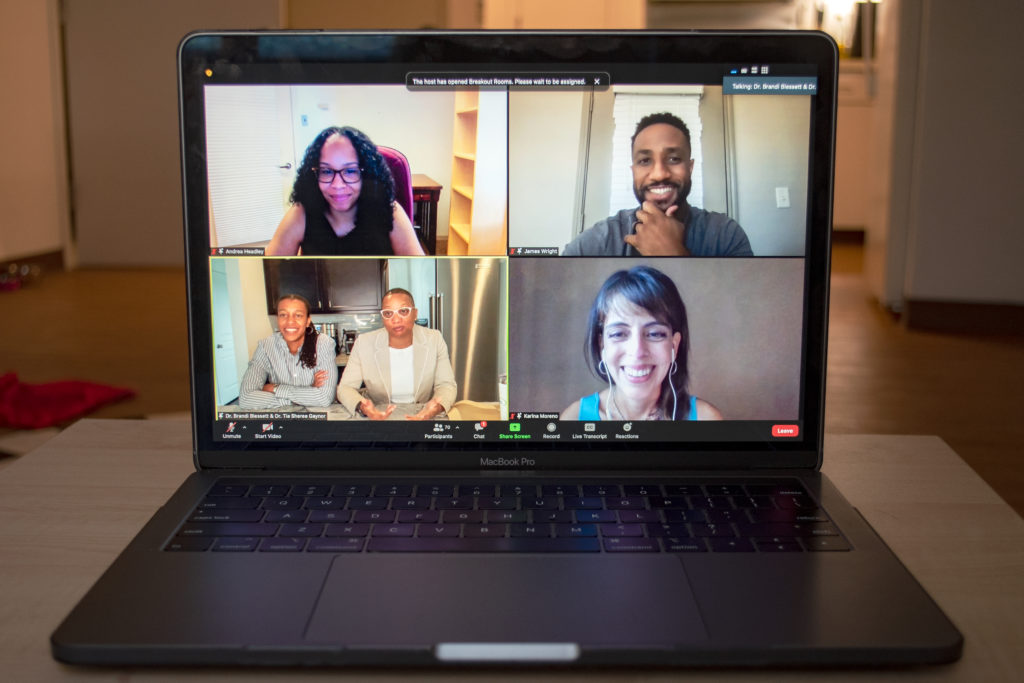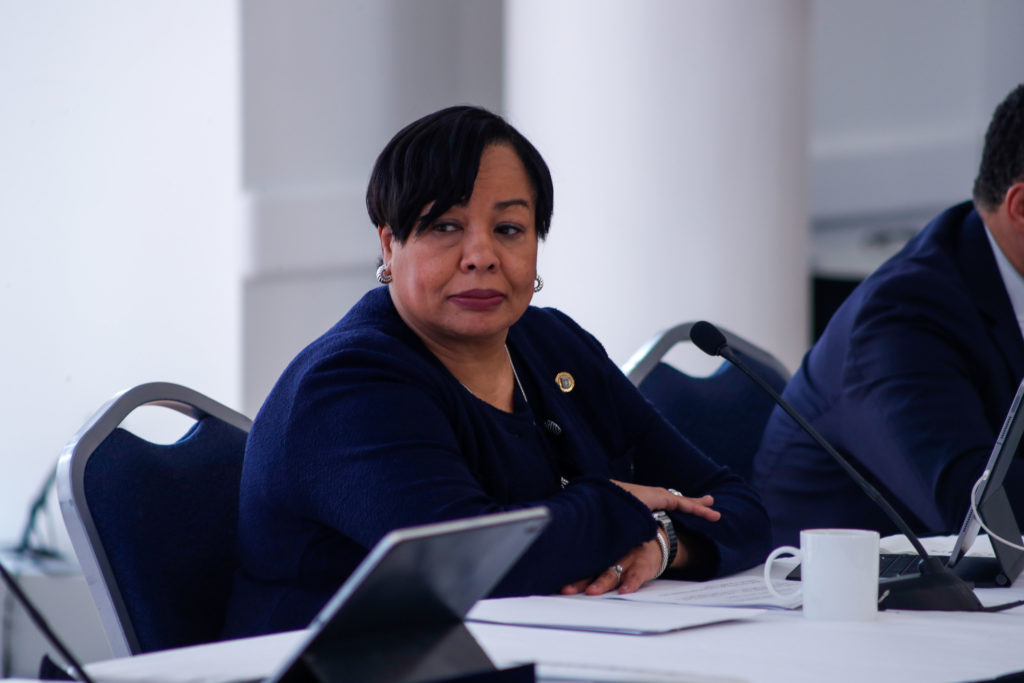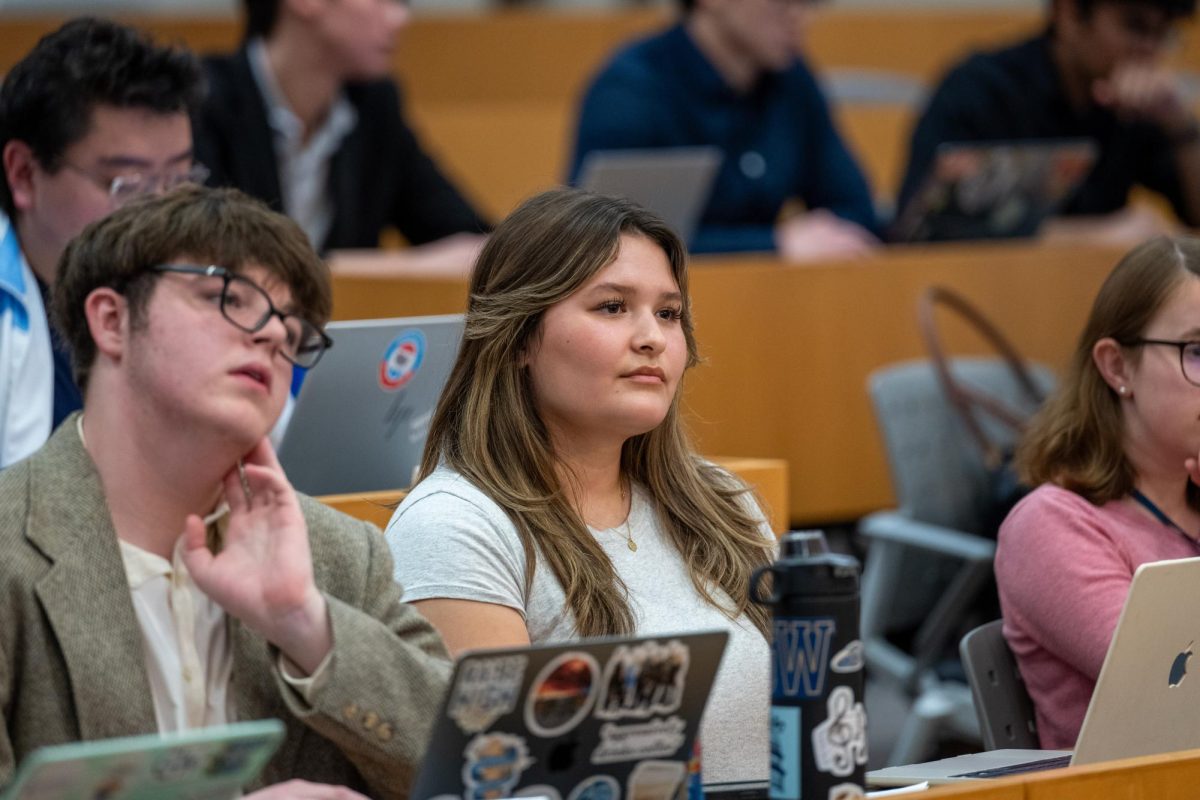The Trachtenberg School of Public Policy and Public Administration hosted an online webinar about teaching and discussing racial justice in public administration Thursday.
Professors from the University of Cincinnati and Hunter College said public administration officials could find inclusive ways to research and instruct on equity when addressing racial justice through more comprehensive teaching curriculum and reform to research standards. Andrea Headley, an assistant professor at the McCourt School of Public Policy at Georgetown University, and James Wright II, an assistant professor at the Askew School of Public Administration at Florida State University, moderated the event.
Tia Gaynor, an associate professor of political science at the University of Cincinnati, said professors should incorporate racial equity and justice in all conversations because of their impacts on the lives and jobs of scholars in fields like public administration. She said Ohio’s state legislature is currently drafting a bill to prevent the teaching of “divisive concepts” like critical race theory, racism and slavery – legislation that would jeopardize her job as a social justice educator and “gut” liberal arts education in Ohio, if passed.
“It’s critically important not only to explore these conversations but also situate racial justice and racial equity in all conversations,” she said.
Gaynor said faculty can teach about racial justice in the classroom through courses that allow students to dig deeper into issues of inequity while inspecting a diverse selection of materials and resources focused on of racial equity. She said incorporating conversations of racial equity into curriculum allows students to develop a better understanding of historical context and current events and how diverse spaces can broaden collective knowledge.
“We have a responsibility to help our students make the connections between what we’re teaching, what we want them to learn and what we’re seeing happening today in society,” Gaynor said.
Brandi Blessett, an associate professor of public administration at the University of Cincinnati, said exposing students to issues involving race and equity is essential because K-12 education has whitewashed the understanding of the history and the trajectory of the United States. She said teaching different ideas from multiple perspectives enables students to look at information differently.
“There are so many other people in so many other communities that have contributed to our society, to the makeup of our institutions and how we understand where we are today,” she said.
Blessett said because government bureaucracies are hierarchical, researchers need to start listening to community members whom they research from the bottom up instead of the top down in society. She said the people most directly tied to the issues would be best equipped to create strategies of success while working with individuals directly to understand daily challenges and build personal relationships.
“I think that it becomes really important for us to be mindful about how we, as researchers, arrive in these spaces claiming to do racial justice work or racial equity work,” she said.
Karina Moreno, a professor of urban policy and planning at Hunter College, said she observed how people struggled to respond as neutral to racial justice and equity issues when she worked with minority populations during the height of the COVID-19 pandemic. She said public administration is not an objective environment because communicating directly and intentionally with an individual does not allow for a neutral position.
“We live in an insidious world where we talk about race without ever saying race,” she said. “It’s like a code, and so I think there’s something very important about being deliberate and being purposeful.”







